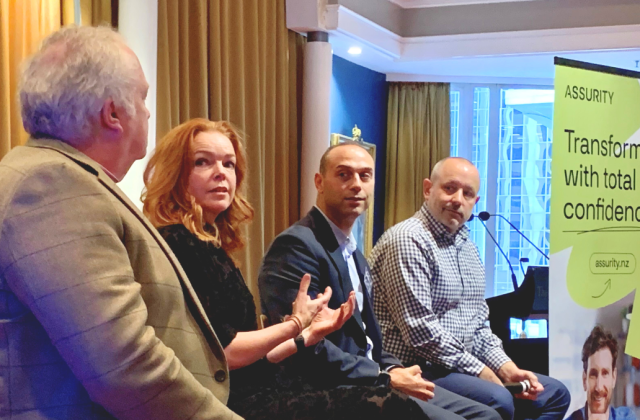Date: 14 June 2022
If you’re considering implementing an Enterprise Resource Planning solution for the first time, there is something you should know at the very outset: An ERP project can make or break your organisation.
These projects are notoriously difficult, demanding, and fraught with multiple risks. But an appropriate test and training regime as an integral component of a comprehensive risk management strategy helps mitigate and avoid some of the more common (and pernicious) risks, putting your organisation in a position to enjoy the advantages of an integrated company-wide system.
#1: If ERP projects are so gnarly, it begs an obvious question: why bother in the first place?
The answer is simple. As an organisation grows, basic systems like accounting packages, Excel spreadsheets and point solutions are no longer fit for purpose. These inexpensive tools, while indispensable for the small and growing business, quickly reach their limitations. While identifying the exact point at which scale becomes unmanageable is difficult (because for some companies it might be numbers of personnel, while others with complex processes might not have many employees), there are telltale signs of when an ERP system becomes necessary.
These include inadequate or difficult to access business data, poorly integrated or isolated systems, deteriorating customer service (because it’s hard to keep track of things), lengthy timeframes for the preparation of year-end and other financial statements, manual and time-consuming business processes, and more.
It is precisely these kinds of issues that a good ERP solution sets out to address.
#2: What’s a good ERP solution?
This answer is both simple and complicated.
Most ERP software available today can be described as good. In fact, just like you’d be hard-pressed to find a ‘bad’ car today, you’d struggle to find ‘bad’ ERP software. The bigger question is, which ERP software is best for your business?
Even this seemingly simple question has a nuanced answer. Nearly all the major vendors offer quality software with a range of ‘preconfigured’ or ‘industry-specific’ options. And there is a surprisingly large number of vendors in the ERP space – some of which you will know, others which you may never have previously encountered. The ones with high brand recognition include Microsoft Dynamics, Oracle and its subsidiary NetSuite, and SAP. Then there are lesser-known, but still major vendors like Infor, IFS, and Epicor. At the smaller end of the scale (which is also where most ‘first time’ ERP implementers might begin) you’ll encounter vendors including Sage, Syspro, and Genius Software, and an absolute ton more.
There are even multiple local vendors, including MYOB (built on technology from American vendor Acumatica), MYOB’s Greentree which was developed locally in New Zealand, and N2 Software, an independent Kiwi software developer.
The reality is that the choice of software is important. But it isn’t as important as the choice of implementation partner. Nearly all vendors work through a channel to market, so while there may be some involvement from the vendor, it is more likely you’ll be working with a systems integrator who will help map your business processes, configure and install the software, and train your users.
Partner choice is crucial because the right partner should offer experience in your business type and experience with the software. They should also make no bones about the fact that the ERP process is daunting; in fact, most who make it through their first ERP project tend to say the same thing: ‘I didn’t think it would be THAT hard’!
#3: What makes ERP implementations so difficult?
That’s a good question with many answers. However, there are three overarching reasons why every ERP project presents an enormous challenge to every organisation. The first is that these projects dwarf anything else you’ve done, being up to 10 times bigger than any previous software or IT initiative. Secondly, the introduction of ERP is transformational, because it changes how you and everyone else do things (and that is inherently risky). The final reason is that ERP projects are generational; your organisation won’t have done one previously at all, or if so, it was perhaps 20 years ago. There is no ‘retained knowledge’, in other words, beyond the possibility of lingering nightmares!
#4: What are the major risks faced with an ERP implementation?
This brings us to the meat and bones of the challenges of ERP implementations. While the risks are multifarious, there are generally around 7 reasons for less-than-stellar outcomes (‘failure’ generally means stated goals weren’t met).
Those reasons are:
- Poor software fit. This often results from inaccurate requirements.
- An uncommitted leadership. ERP demands strong sponsorship from the top.
- Inadequate team resources (internal and external). ERP is HARD! And it depends on committed, focused, and dedicated team members.
- Inadequate focus and investment in training and change management. ERP is transformational and people don’t like change.
- Excessive customisation. Moving too far away from standard processes is risky and can fatally compromise the software. It also presents challenges with upgrades.
- Lack of comprehensive testing. Along with change management, this is the most-oft cited reason for failure.
- Scope creep. Once the possibilities of what an ERP can do become clear, clients push for additional features. Or implementation partners make suggestions, looking to upsell. Either way, scope creep is dangerous, putting budgets and deadlines at risk, while driving up complexity. Scope creep can also cause friction between implementation team members.
#5: Why testing is so important (and when should testers get involved)
Many companies face extreme difficulty when implementing and adopting a new ERP system, with key reasons including inadequate training and little to no knowledge of software testing and quality assurance. Training and testing are related, particularly when a human-centered design approach is taken (already, ERP vendors are introducing ‘consumerised’ interfaces to their software, making the use of ERP applications more like consumer technology). However, far too many organisations treat training and testing as an afterthought at best or neglect it altogether.
This is extraordinarily risky. In fact, a good deal of the risk of your project going awry can be mitigated by bringing in testers and planning for testing and quality assurance as an integral component of the project from day one.
That’s because good software quality assurance people aren’t just about evaluating software performance. Instead, they are interested in how people use the software, how the processes relate to the software and the people, and how your business gets things done.
When these perspectives are included in the presales phase of your project, it results in uncomfortable questions…for your vendor and implementation partner, mainly, because these are questions they probably don’t want to hear.
Remember, testers and QA people are all about identifying and mitigating problems. This starts from day 1. Is the software a good fit? Are the business processes known and understood? Are they aligned between customer, vendor, and implementation partner? Is the leadership in the room (QA demands it!)
Our view is that building in quality assurance and testing from the very start introduces a pervasive culture of risk identification, mitigation, and management. Leaving it too late means leaving the door wide open to the many problems which can creep in and sink your project.
And nobody wants that to happen – not the vendor, not the implementation partner, and certainly not your business.
In the next blog, I’ll discuss how ERP testing works, and the various types of tests and QA practices we apply for a positive ERP experience.














